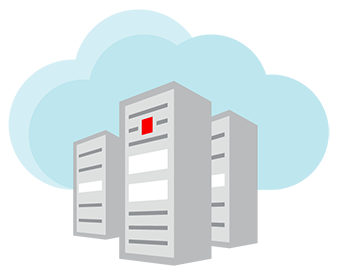[With special thanks to Sunil, Paul, Robert and Scot for their contributions.]
This FAQ explains how to patch Oracle E-Business Suite (EBS) databases on Oracle Cloud Infrastructure (OCI), including both Database 23ai and 19c. It covers the main tools, steps, and differences from on-premises patching, and addresses common questions for administrators using Exadata and Base Database Service platforms.
Key Questions & Answers
Q1: Is EBS database patching on Oracle Cloud different from on-premises?
A1:
Yes. When using Oracle Database Services in OCI (such as Exadata or Base Database Service), patching relies on Oracle’s automation (like dbaascli or dbcli or the OCI Console) rather than manual command-line patching. This ensures Oracle’s lifecycle management systems remain in sync and that prechecks, patch selections, and rollbacks are performed as required. If your EBS database is deployed on Compute, patching is identical to on-premises.
Q2: How do I patch my EBS database on Compute?
A2:
Patching on Compute is the same as on-premises: use OPatch to apply quarterly updates (Release Updates) and interim fixes, following Oracle EBS and database documentation (see Doc ID 1594274.1 ).
Q3: How do I patch my EBS database on Oracle Database Service (Exadata or Base Database Service)?
A3:
For both 23ai and 19c:
- Use OCI patching tools (
dbaasclifor Exadata,dbclifor Base DB, or the OCI Console). - Select the certified Release Update (RU) or a custom Database Software Image (DSI) that includes your required patches.
- Follow Oracle’s process: run prechecks, orchestrate patching, and handle post-patch steps via the tooling.
- Apply one-off/interim patches with OPatch if needed, after completing the main patch cycle.
- Post-patch, always validate with ETCC and EDBPC tools.
Q4: What’s different between patching on Database Services and on-premises?
A4:
- Cloud patching is automated and tracks cloud metadata for service health and updates.
- Only Oracle-certified patch images (or tested DSIs) are supported; manually applied RUs are not.
- Built-in prechecks flag issues before proceeding and ensure patch compliance.
- The Oracle tooling updates Oracle Home locations, handles rollback as needed, and preserves service configurations.
Q5: What are the main steps to apply a quarterly database patch on a Database Service (either 23ai or 19c)?
A5:
- Ensure EBS and database versions are supported for your patch update.
- Identify and select the patch using OCI Console or Oracle command-line tools.
- Run prechecks to detect conflicts and prerequisites.
- Plan and schedule required downtime and backups.
- Stop EBS application tier services.
- Patch Grid Infrastructure (GI) if required, then restart EBS services.
- Stop EBS services again; patch the Database Home.
- If needed, apply any custom/interim patches with OPatch after stopping EBS database services.
- Validate with ETCC and EDBPC tools.
- Finalize post-patch tasks (such as running datapatch, setting environment variables, and checking for known issues).
- Restart EBS application tier services.
Q6: Where can I find instructions for installing database patch updates on my particular type of Database Service?
A6:
Instructions for installing database patch updates can be found in the appropriate document on My Oracle Support:
For Oracle Database 23ai:
- Installing Oracle Database 23ai Patch Updates for Oracle E-Business Suite Release 12.2 on Oracle Exadata Database Service on Dedicated Infrastructure or Cloud@Customer (Doc ID 3019999.1)
- Installing Oracle Database 23ai Patch Updates for Oracle E-Business Suite Release 12.2 on Oracle Base Database Service 1-Node DB Systems (Doc ID 3019997.1)
- Installing Oracle Database 23ai Patch Updates for Oracle E-Business Suite Release 12.2 on Oracle Base Database Service 2-Node DB Systems (Doc ID 3019998.1)
For Oracle Database 19c:
- Installing Oracle Database 19c Patch Updates for Oracle E-Business Suite with Oracle Exadata Database Service on Dedicated Infrastructure or Cloud@Customer (Doc ID 2368508.1)
- Installing Oracle Database 19c Patch Updates for Oracle E-Business Suite with Oracle Base Database Service 1-Node DB Systems (Doc ID 2360215.1)
- Installing Oracle Database 19c Patch Updates for Oracle E-Business Suite with Oracle Base Database Service 2-Node DB Systems (Doc ID 2476292.1)
For information about applicability of these documents to different cloud realms, refer to the following sections in Getting Started with Oracle E-Business Suite on Oracle Cloud Infrastructure (Doc ID 2517025.1):
- 3.1.1 Regions and Realms
- 4.5.4 Patching the Database

